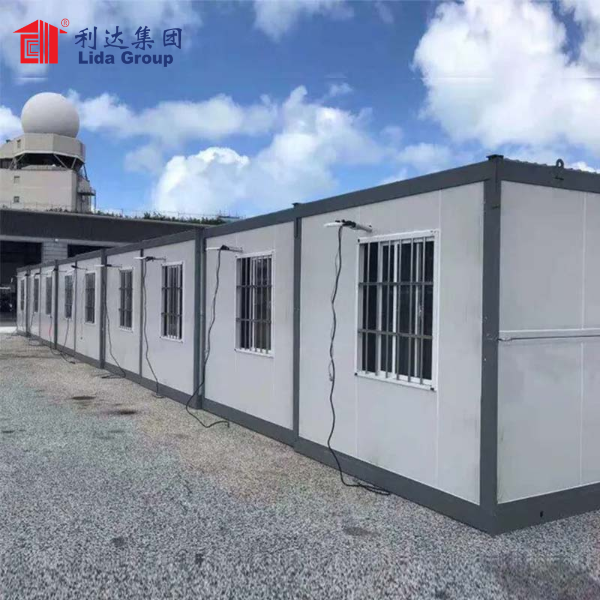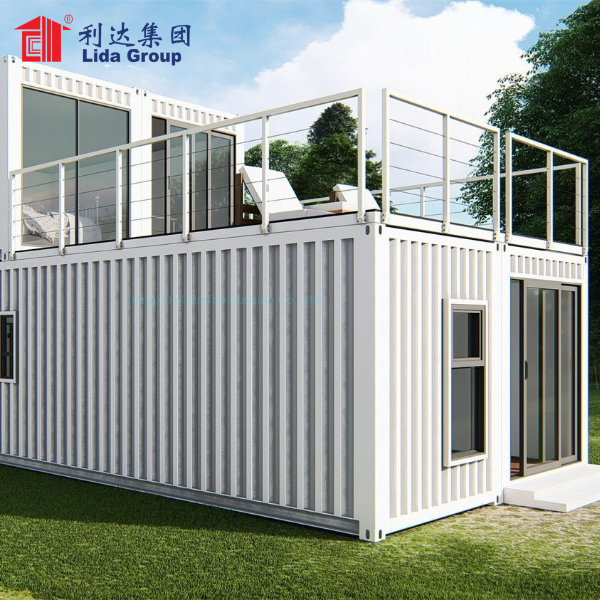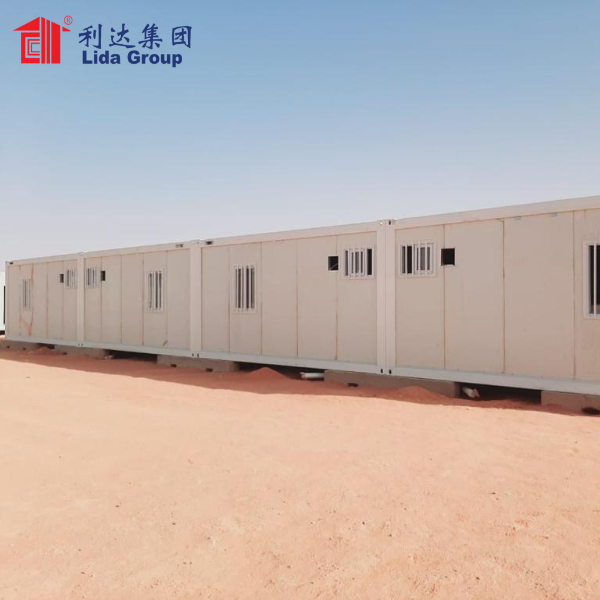Introduction:
In today’s world, the importance of sustainability and environmental responsibility cannot be overstated. Lida Group has recognized this imperative and has been at the forefront of designing and constructing eco-friendly container buildings. These innovative structures offer a sustainable solution for various applications, including residential, commercial, and industrial. In this article, we will explore the concept of eco-friendly container buildings, discuss their advantages, and highlight how Lida Group is leading the way towards a sustainable future.
- The Concept of Eco-Friendly Container Buildings:
Eco-friendly container buildings are constructed using repurposed shipping containers, which provide a sustainable and efficient alternative to traditional construction materials. These structures are designed to minimize their environmental impact throughout their lifecycle, from production to use and eventual disposal. Eco-friendly container buildings prioritize energy efficiency, waste reduction, and the use of eco-friendly materials, making them a sustainable choice for construction projects. - Benefits of Eco-Friendly Container Buildings:
2.1. Resource Conservation:
By repurposing shipping containers, eco-friendly container buildings contribute to resource conservation. Traditional construction methods require extensive use of raw materials, which can deplete natural resources and generate significant waste. By utilizing existing containers, these buildings reduce the demand for new materials and minimize waste generation, promoting a more sustainable approach to construction.
2.2. Energy Efficiency:
Eco-friendly container buildings are designed with energy efficiency in mind. The repurposed containers can be insulated and fitted with energy-efficient systems, reducing heating and cooling demands. Additionally, these buildings can incorporate renewable energy sources such as solar panels, further reducing reliance on non-renewable energy and lowering carbon emissions.
2.3. Adaptability and Flexibility:
Container buildings offer adaptability and flexibility, allowing for easy expansion, relocation, and reconfiguration. This versatility makes them suitable for a range of applications, including temporary structures, pop-up shops, and emergency shelters. The modular nature of container buildings enables owners to adjust the space according to changing needs, minimizing waste and maximizing resource utilization.
2.4. Reduced Construction Time and Cost:
Building with repurposed containers can significantly reduce construction time and cost. The prefabricated nature of containers allows for efficient manufacturing and streamlined on-site assembly. This rapid construction process minimizes labor requirements and associated costs. Moreover, the use of repurposed containers reduces the need for extensive foundation work, further reducing construction expenses.
- Lida Group: Leading the Way in Eco-Friendly Container House:
Lida Group has been a pioneer in the development and construction of eco-friendly container buildings. The company’s commitment to sustainability and innovation has set it apart in the industry.
3.1. Design Excellence and Customization:
Lida Group offers a wide range of design options for eco-friendly container buildings. Their team of architects and engineers collaborates closely with clients to create customized solutions that meet specific requirements. From layout and interior design to the integration of sustainable features, Lida Group ensures that container buildings are not only eco-friendly but also functional and aesthetically pleasing.
3.2. Sustainable Construction Practices:
Lida Group incorporates sustainable construction practices in their eco-friendly container buildings. The company focuses on using eco-friendly materials, such as recycled insulation, low VOC (Volatile Organic Compounds) paints, and sustainable flooring options. They also implement water-efficient fixtures and systems to reduce water consumption. These practices contribute to the overall sustainability of the buildings and align with the growing global emphasis on environmentally conscious construction.
3.3. Collaboration for Sustainability:
Lida Group actively collaborates with partners and suppliers to promote sustainability throughout the supply chain. By working with environmentally responsible suppliers and promoting sustainable practices, Lida Group ensures that their eco-friendly container buildings adhere to high standards of sustainability and contribute positively to the environment.
- Future Prospects and Conclusion:
The future prospects for eco-friendly container buildings are promising as societies increasingly prioritize sustainability and environmental stewardship. Lida Group’s commitment to eco-friendly practices and their expertise in constructing these buildings position them at the forefront of sustainable construction solutions.
In conclusion, Lida Group‘s eco-friendly container buildings offer a sustainable and innovative approach to construction. With their resource conservation, energy efficiency, adaptability, and reduced construction time and cost, these buildings provide a blueprint for a sustainable future. As Lida Group continues to lead the way in designing and constructing eco-friendly container buildings, they contribute significantly to the global movement towards a more sustainable and environmentally responsible built environment.
Post time: Aug-09-2023



